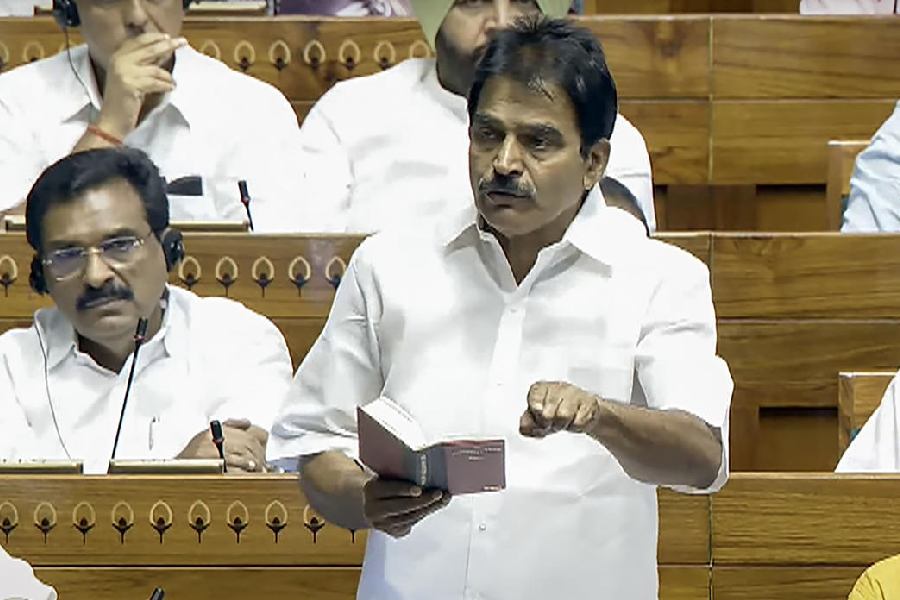The Centre on Thursday agreed to refer the Waqf (Amendment) Bill, 2024, to a joint parliamentary committee after a vociferous Opposition in the Lok Sabha objected to its introduction, calling the draft legislation “unconstitutional”, “anti-federal” and “divisive”.
This is only the third time since 2014 that the Narendra Modi government has agreed to refer a bill to a JPC for closer scrutiny. And, the waqf bill is the first of them with political ramifications, the earlier two being the Personal Data Protection Bill, 2019, and the Biological Diversity (Amendment) Bill, 2021.
The JPC offer came at the fag end of a lengthy discussion at the introductory stage of the bill, another rarity in the Modi years as highlighted by RSP member N.K. Premachandran.
“When a bill is opposed on the ground that it is outside the legislative competence of this House, the Speaker has the authority to grant a full-fledged discussion. This is the first time, during my past experience, that you have allowed such a discussion under Rule 72(1) second proviso, and we are thankful to you for this,” he said.
This is Lok Sabha Speaker Om Birla’s second term.
The discussion on the bill’s introduction lasted more than two hours and saw several Opposition parties call for withdrawal of the draft legislation. They alleged that it was being brought to polarise the country with an eye on the upcoming Assembly elections in Maharashtra, Haryana, Jharkhand, and Jammu and Kashmir.
Leading the Opposition charge, K.C. Venugopal of the Congress questioned the provision that allows two non-Muslims to become members of the Waqf governing council.
He asked the government if it would allow non-Hindus to be appointed members of the board that manages the affairs of the Ayodhya temple.
Sudip Bandyopadhyay of the Trinamool Congress said that not only was the bill an attack on the freedom of religion, “it is against federalism as land is stated in the Seventh Schedule of the Constitution as a state subject”.
While the NCP’s Supriya Sule called for withdrawal of the bill, E.T. Mohammed Basheer of the Indian Union Muslim League said: “This bill is ill-motivated...”
The AIMIM’s Asaduddin Owaisi said: “Waqf properties are not public properties. By removing waqf by user, this government wants to take over dargah, masjid and waqf properties. Take the example of Section 107 where it has been made more difficult to recover the encroached waqf properties.”
Defending the bill, minority affairs minister Kiren Rijiju asserted that there was no interference in the freedom of religion. He argued that the opposition was coming mainly from the dominant group among Muslims whereas the effort was to ensure justice for all members of the community including the Bohras, Ahmadiyyas and Agakhanis.
Rijiju contested the charge that no proper consultations were held, underlining that the bill had been a work in progress for years and that various stakeholders had been drafted into the process.










